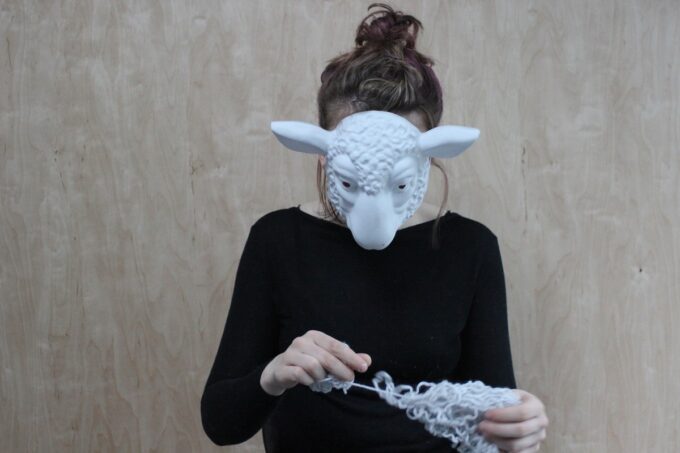PHD in Studio Art
What is the difference between the MFA and the PhD?
Both degrees are postgraduate. The main differences are that the MFA is a taught degree and the PhD is a research degree which is at a higher academic level. The MFA is a National Framework of Qualifications (NFQ) Level 9 degree, and the PhD Level 10. A taught degree provides a curriculum to a group of students, and for the MFA this is a combination of studio practice and critique, engagement with the history and theory of art, and engagement with professional skills.
As a traditional research degree the PhD in Studio Art does not have a set curriculum or a formula for the proportions of elements that a student may address. Instead it is a project enquiring into a different topic or research question for each student. The supervisor’s discretion is more important in a PhD than a teacher’s discretion in an MFA, so as to enable flexible responses to the circumstances of a programme of enquiry that emerge and change as the enquiry progresses. The academic level of the PhD is the generation of knowledge and understanding in studio that makes a significant contribution to knowledge and understanding in the judgement of one or more external experts serving as an examiner(s).
Does Burren College of Art offer a Low Residency PhD?
A low residency programme normally offers a PhD within the timescale of a Full-Time programme, with less than Full-Time attendance, but supported by intensive distance learning and online methods in compensation for the reduced attendance that together amount to the same effort as that required in Full-Time attendance. We are not in a position to offer that intensive distance learning process since our main strength is an immersive experience in a unique location.
Instead we offer a Part-Time option for the programme that enables intensive research programmes undertaken away from BCA for much of the time and enhanced by short, intensive periods of in-person research at BCA as is feasible and credible.
Where can I find out more about PhDs in Studio Art?
It is important that anyone intending to apply to the BCA should read the following texts that provide a sound introduction to PhDs in Studio Art.
- University Guidelines for Research Degree Programmes, Graduate Studies Office, University of Galway, University Road, Galway, Ireland
- James Elkins (Ed), Artists With PhDs, on the new doctoral degree in studio art, New Academia Publishing, LLC, 2009. Second edition forthcoming 2014.
- Jane Matthiesen and Mario Binder, How To Survive Your Doctorate, Open University Press, McGraw Hill, 2009
What is the difference between “maximum,” and “minimum” periods of study, and what should a student plan for?
A supervisor should agree to a student completing their project only once the research question has been satisfactorily answered and the outcomes demonstrated and presented satisfactorily within the university’s research guidelines. The determining factor for completion of a PhD is the satisfactory completion of the project. Completion may not take place in less than the minimum period of study. Any extension to the maximum study period must be agreed with the university. Therefore, a student should plan to complete within the normal period. Exceptionally completion may take less than the normal period. It is significant that a supervisor will not agree to a project going forward for examination until he/she approves it for examination. In this respect a PhD differs from a taught course that may be examined on the basis of the satisfactory completion of the component parts of the programme within a fixed period of time.
Does BCA offer Teaching Assistantships?
A limited number of Teaching Assistantships are available on an ad hoc basis to assist with occasional tutorials and group critiques. Given the scale of the college, we are not in a position to offer full-course TAs.
Aren’t BCA PhD students a bit isolated?
Burren College of Art is a small artistic and educational community that is connected internationally and PhD students are full members of this community, benefitting from and contributing to the community ethos. The college is remote rather than isolated. It is in the nature of PhD research that high levels of independence and resourcefulness are required beyond those associated with Masters level programmes. However, this should not amount to isolation since deep engagement with the field of enquiry involving good networking abilities, locally, regionally, nationally, and internationally is encouraged. PhD students are expected to seek out and attend relevant symposia, conferences and other research fora as well as to explore exhibition opportunities.

